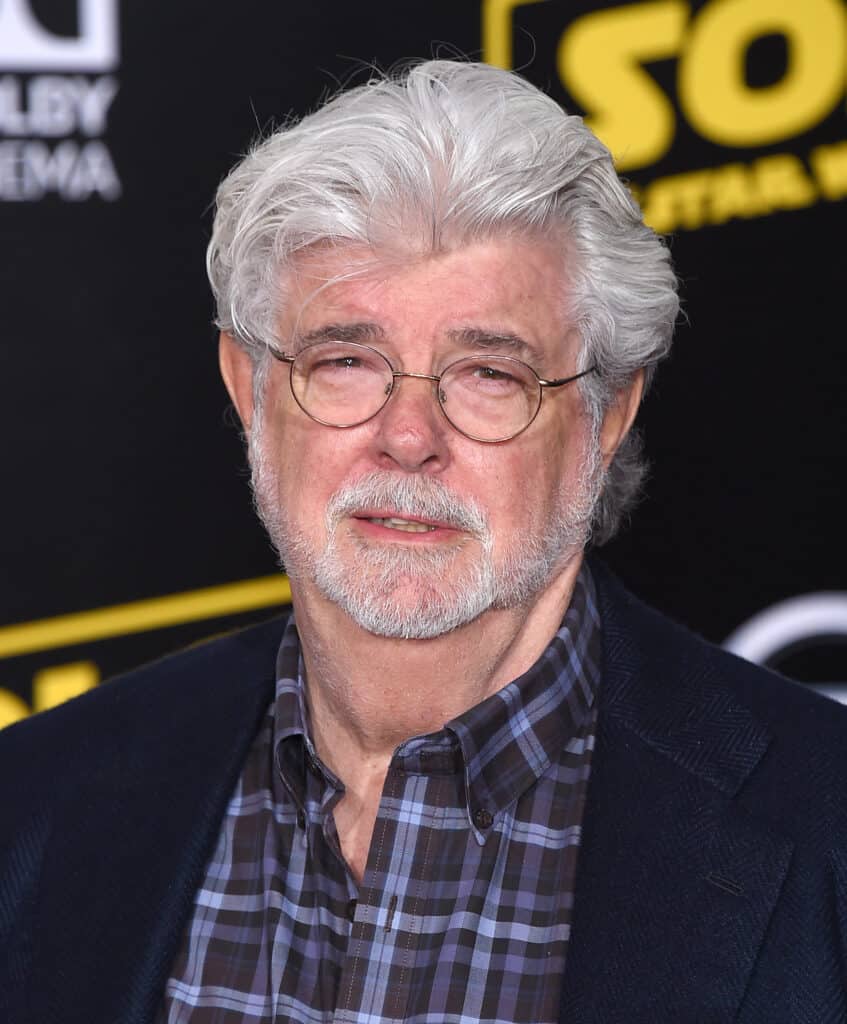Since its 1977 arrival, Star Wars has consistently been one of the largest and most profitable franchises in entertainment, the original movies spawning a world so rich in lore as to allow for countless adaptations in other forms of media. Does the original father of the Star Wars empire, George Lucas, still make money from the franchise?
George Lucas does not directly make any money from Star Wars, though will receive some compensation in the form of royalties when his characters are used. Indirectly, however, he owns many shares in Disney, which are influenced by Star Wars’ success.

When Lucas first sold Lucasfilm to Disney, the decision was met with some seriously mixed reactions. Fans expressed a mixture of emotions, from horror and trepidation about the idea of Disney destroying the franchise, to excitement at the prospect of new big-budget content in the Star Wars universe.
One person who must have had a smile on his face was the founding father of the franchise, Lucas, as he netted himself a tidy multi-billion-dollar payday as well as a huge chunk of Disney stock.
The Deal
Believe it or not, despite securing himself enough money to last multiple lifetimes the last thing on Lucas’ face was a smile after the deal. Star Wars had been his baby for decades, whose story and characters had been built from the ground up entirely by him.
It was a bittersweet affair, handing over the rights to something that he had poured so much of himself into, with the four billion dollar payday only doing so much to soften the blow of losing Lucasfilm.
That transaction is related to how he still indirectly profits from Star Wars. You see, even though the thought of that much money is likely enough to make him never want for anything ever again, Lucas had long-term goals in mind with the sale.
Instead of taking the entirety of the $4 billion in cash, Lucas instead wanted half that value in stocks with Disney. With the multimedia empire that Disney is built on, it wasn’t just an incredibly smart investment to make, it was one that was almost guaranteed to make him even more money.
That concept of it being a stock set to rise was even more true when considering the fact that he had just sold Lucasfilm to them. One other stock that is always riding a high is Star Wars, and Disney was about to start producing new, eagerly awaited movies.
The gamble, if you could even call it that, has since paid off. Lucas’ original $4 billion deal is now worth a staggering $6 billion, and still rising, a number that will soon be double the original sale value of Lucasfilm.
More Than The Money
Although the extreme amount of money that Lucasfilm earned him and continues to indirectly earn him is impressive, it was never about the money for Lucas.
Even his original impetus to sell Lucasfilm wasn’t anything to do with the need for more money or any kind of concern that the franchises under the studio were being left to stagnate. The main motivation behind the sale was the fact that Lucas was considering making another trilogy of movies in the Star Wars universe.
Lucas, when speaking on the kind of timeframe that would potentially be required for another trilogy, estimated that it could have taken him around ten years minimum. At the age of 69 at the time, Lucas simply didn’t feel like he could go through that gauntlet again.
On one hand, a suggestion could be made that Lucas could have simply kept a hold of the franchise and the studio, and handed the work off to trusted colleagues. Lucas has addressed this before in interviews, though.
Understandably, Lucas expressed in those interviews that if he were to hand the work over to someone else and only involve himself in a few specific processes of the production such as the writing, he would inevitably be drawn back in.
Lucas has since expressed some unhappiness with letting go of Lucasfilm, and where Disney decided to take his franchise, so he’s perhaps not too overjoyed that the pile of Disney money continues to grow in the way that it does.
Regardless, Lucas left a legacy of timeless classics that have stood the test of time and will continue to do so.